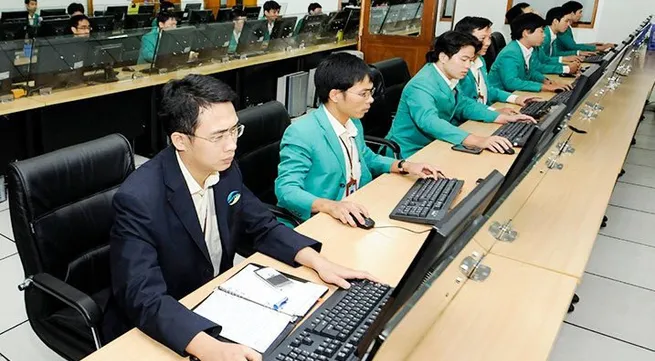New mechanisms and policies needed for State-owned enterprises to grow

And a policy reform is needed for enterprises to operate in line with the market mechanism and make decisions in a proactive and flexible manner like private enterprises.
The performance of SOEs has not seen marked improvement in recent years and is not commensurate with their resources while the restructuring process has been slower than expected. The reason lies in the drawbacks in the mechanism and policy on this economic sector.The concern shared by many SOEs is the gradual loss of their position in the market as their growth is trailing behind private and foreign-invested enterprises.
Lilama, for example, was a notable player in the market during the early 2000s as the general contractor of various hydropower projects, oil refineries and cement factories. The company’s annual revenue had reached over 20 trillion VND (875 million USD) at times, but the figure has now dropped to 4 trillion VND (175 million USD).
Lilama Chairman Bui Duc Kien explained that in the later years, there were not as many projects while the company had also overdiversified its investments, ranging from cement to electricity and banking. Such investments were not productive and Lilama had to divest and restructure.
Even the SOEs that are dominating the market are also worried about the road ahead if the management mechanism over SOEs is not reformed.
Viettel General Director Tao Duc Thang said the largest room for the company is now investing in start-up companies through venture capital funds, but all of its decisions are not as quick as those of private enterprises. When opportunities are available, private firms only take a month, or even a week, to sign contracts but it could take SOEs several months to complete all the procedures. As a result, SOEs find it very difficult to grow and are thus becoming smaller than private companies.
VNPT Chairman To Anh Dung shared that the telecommunications market is facing saturation and revenues of telecoms firms are going flat or even going down, so the new space for growth is in digital transformation. SOEs have not occupied a significant share in this field.
Amid the lightning-fast development of the market, VNPT has created a plan to restructure and asked for the government’s early approval so that it will have the opportunities to grow faster. Unlike private enterprises, which can invest in anything they find profitable, SOEs are only allowed to do what is right and risks are not accepted, so it is very difficult for them to innovate, especially in the IT field. Dung is expecting a new policy so that SOEs can promote their role in driving the economy, especially during this difficult period.
The biggest wish of SOE leaders is that they can operate as normal enterprises, by giving them the autonomy to do business on the basis of specific development orientations, tasks and goals. SOEs need to have clear property rights and should be monitored and assessed based on the general development goals, rather than specific projects or activities.
If so, SOEs must be regarded as having the full rights and obligations like other enterprises in the economy. Mechanism and policy reform is needed for SOEs to operate in accordance with the market mechanism and operate in as proactive and flexible a manner as private enterprises. This requires separating the function of representing owners from the function of enterprise management, thus reducing the intervention of owner representing agencies in the operation of SOEs that is happening now.
According to Vinatex Chairman Le Tien Truong, current policy inconsistencies are undermining the performance and competitiveness of SOEs compared to private and foreign-invested companies. He said that all matters must be presented to the owner for permission and in turn the owner must seek opinions from the relevant agencies. Such a process is time consuming and those who understand the market most are not allowed to make decisions to seize on the opportunities.
Aware of such drawbacks, the Ministry of Planning and Investment has suggested that ministries, agencies, localities and the Commission for Management of State Capital at Enterprises should change their working method and not intervene in the business administration of SOEs.
In addition, it is necessary to implement synchronous policies on wages aligned with labour productivity and business performance of enterprises, link SOE development with the strategy of economic sector development, and change the mindset and viewpoint on equitisation and disinvestment.
Once such measures are carried out, the development space for SOEs will be expanded and they will be driven to innovate and enhance the competitiveness of SOEs.
Tags:





